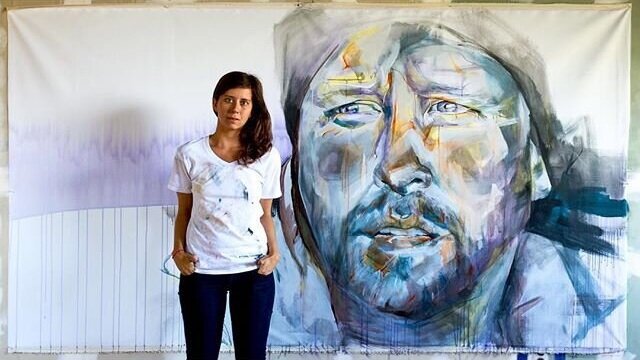Neurodivergent Affirming Care and Resources
What is neurodivergent affirming care?
Hiding in Plain Sight: Girls With Autism Spectrum Disorder
Autism Affirming Care views neurodivergence as a continuum of differences and strengths in the way brains function and interface with the world.
Affirming care does not view this continuum or spectrum as a disorder or a disease to be cured.
It does take the very real challenges of neurodivergence seriously and with empathy, while celebrating and seeing the gifts and value to the world that neurodivergence offers.
I whole heartedly welcome you and your family into my practice and look forward to serving you.
“Though masking is incredibly taxing and causes us a lot of existential turmoil, it’s rewarded and facilitated by neurotypical people. Masking makes Autistic people easier to “deal” with. It renders us compliant and quiet. It also traps us. Once you’ve proven yourself capable of suffering in silence, neurotypical people tend to expect you’ll be able to do it forever, no matter the cost. Being a well-behaved Autistic person puts us in a real double bind and forces many of us to keep masking for far longer (and far more pervasively) than we want to.”
Dr. Devon Price
Author of Unmasking Autism: Discovering the New Faces of Neurodiversity
The Positives of Autism
This article is a reprint from
Maureen Bennie
March 25, 2019
Autism is often defined and described in terms of deficits. This happens in order to determine what supports are needed, for program design and implementation, and level of funding; but always talking about what a person can’t do or do as well as their peers can be demoralizing. Improvement can be difficult to see and small but significant gains are not celebrated. Talking about the deficits can also affect self-esteem and a person’s well-being.
I recently posted on Facebook an infographic about the positives of autism. That post had over 300,000 views and 4,000 shares which got me to thinking – people really want to highlight and talk about the positive aspects of autism and stop dwelling on what is perceived to be the negative ones. Thinking about autism in more favorable terms will change your thinking and responses towards someone with autism.
Here are some of the positives of a neurodivergent brain structure:
Attention to Detail – there is both a thoroughness and accuracy around specific details. This can be a real plus in jobs that require that skill such as quality control. Some more ideas for jobs can be found in this article by Temple Grandin.
Deep Focus – concentration level can be very focused, allowing for freedom from distraction. My adult children spend hours on an activity that they enjoy. My son reads 2- 3 non-fiction books aloud to himself every week.
Observation Skills – there is a listen, learn, look approach to learning. Facts are researched. For example, my daughter will observe an activity a number of times before she will participate, but when she does join in, she can do the task well.
Absorb and Retain Facts – the long-term memory is excellent with superior recall. I am always amazed at the facts my son tells me about things he has learned years ago, particularly around the topics of Titanic and music.
Visual Skills – tend to be visual learners and detail focused. Temple Grandin’s book Thinking in Pictures really highlights this.
Expertise – there is in-depth knowledge on a topic and a high level of skills.
Methodical Approach– thought processes are analytical; can spot patterns and repetitions. Science, math and music are subjects that have patterns in them. Organizing and categorizing use these skills.
Novel Approaches –unique thought processes and innovative solutions. Here is a list of some famous people you may recognize who may have been or are on the spectrum and what they’ve contributed.
Creativity – a distinctive imagination and expression of ideas. Here are some visual artists on the spectrum. The Art of Autism is also a great website to see the work of artists with autism.
Tenacity and Resilience – determination and challenging opinions. To read more on this topic, have a look at this article.
Accepting of Difference – less likely to judge others; may question norms. My adult children never judge people on the basis of social status, career, accomplishments etc. They love people for who they are.
Integrity – honest, loyal and committed. For example, my daughter has never missed a shift in two years of volunteering at a no-kill cat charity. She says, “Those cats need me and depend on me. They need to be loved.”
Thinking about the positive aspects of autism can change the opinion of a potential employer, open doors to new opportunities, make the community more inclusive, and change how we support people with autism at home, school, and in the community. Teach to the strength and talk to parents about their children in terms of those strengths. A positive approach will build strong relationships, which is the base for good development and quality of life. Celebrate a different way of thinking and what that can add to the world we live in.
Did you enjoy this post?
Please share it with your friends on your favourite social network.
About the author:
Maureen Bennie
Maureen Bennie created the Autism Awareness Centre in 2003 to address what she saw as a gap in support and advocacy for those struggling with autism and autism spectrum disorders. For Maureen, education brings positive change to the lives of those affected by autism and autism spectrum disorders.

“Autism can’t define me, I define autism.”
Dr. Kerry Magro – National Speaker
Reading and Organizations
“A Thinking Person’s Guide to Autism” by Shannon Des Roches Rosa
Unmasking Autism: Discovering Faces by Dr. Devon Price
Girls Growing Up on the Autism Spectrum by Shanna Nichols
Neurotribes by Steve Silberman — a comprehensive work on the history, diagnosis, and increasing understanding of what autism is (and isn’t)
Autism Self-Advocacy Network (ASAN)
Uniquely Human: A Different Way of Seeing Autism
Thinking in Pictures
The Autistic Brain, Helping Different Kinds of Minds Succeed
Amelia and Me
Uniquely human: A Different Way of Seeing Autism
The Reason I Jump
Population one – autism, advocacy and the will to succeed
Podcasts and Websites:
neurodivergentinsights.com
AUTISTIC WOMEN EVERYWHERE
Other Autism
Autism Unmasked by Dr. Devon Price, PhD.
https://www.myautism.org
https://the-art-of-autism.com
https://www.aane.org
https://discoverpods.com/austistic-creator-podcasts
https://blog.feedspot.com/autism_podcasts
https://uptimize.com
https://autismawarenesscentre.com
https://affectautism.com
Research rabbit hole:
https://pubmed.ncbi.nlm.nih.gov/33054401
Tags: autism characteristics, autism strengths, positive aspects of autism.
Mikaela Sheldt
Mikaela finds her happy place capturing expressions of people, creating portraits, and surfing. For Sheldt, the sketches she makes has less to do with practicing and more about getting to know the person.
Sheldt loves creating realistic art to feel secure and safe. You can follow her amazing work on Instagram: “@mikaelasheldt”.

